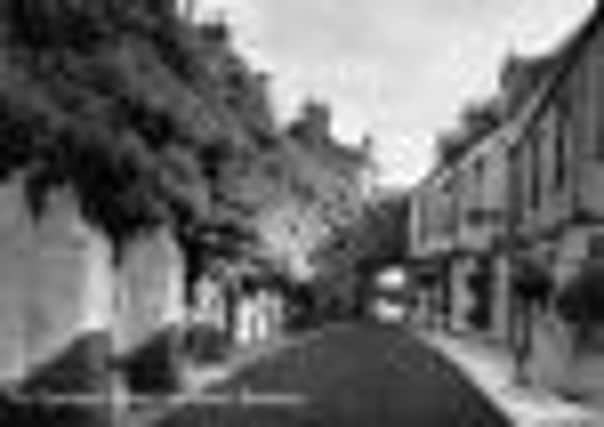Market matters in 1864


In ‘Victorian Banbury’ (published by Phillimore) Dr Barrie Trinder explored a way of life that added up to market town culture especially between 1850 and 1880.
It follows that when in 1863 George Bradshaw of railway timetables and tours fame urged people to take to the tracks the opportunity was presented to discover some of the outward manifestations of this culture.
Advertisement
Hide AdAdvertisement
Hide AdOne of the first open spaces encountered on leaving the Great Western railway station would have been the Cow Fair part of Bridge Street.
This was the location of the cattle market.
By April 1864 the chances of seeing livestock related activity had increased as a result of a prolonged and greatly heated debate which dominated the proceedings of several Town Council meetings.
The issue was whether or not the fat cattle fair should happen fortnightly instead of monthly and if so was Thursday preferable to any other part of the week.
Elected members were divided on this matter. Some favoured Tuesday because butchers often had to stay at home for business reasons.
Advertisement
Hide AdAdvertisement
Hide AdAlderman Cowper was in their ranks and expressed concern about the availability of sufficient stock.
Speaking of dealers and butchers he remarked: “It is no use bringing cattle and sheep to a fair where there probably would not be a hoof a piece for them”.
He went on to say that in many cases this was due to competition from fairs as near as Southam in Warwickshire and as far as London and Birmingham.
Despite these strongly held opinions the mayor made the sensible suggestion that informal consultations might be carried out at the annual Twelfth or Horse Fair.
Advertisement
Hide AdAdvertisement
Hide AdAlderman Cowper went a stage further and mingled with country folk in the bars of the Red Lion Hotel.
The inevitable outcome of these enquiries was to expose a state of divided opinions.
Basically there were three different views namely retention of the status quo (monthly on Thursdays), fortnightly on a Tuesday, and fortnightly keeping to Thursday which was the accepted ordinary market day.
Apparently the Leamington dealers favoured the second of these. Their argument was that most of the new fairs such as Southam and Moreton-in-Marsh were held early in the week.
Advertisement
Hide AdAdvertisement
Hide AdAn interesting variant on these alternatives was summed up in the view that day of the week was less important than willingness to bring stock to Banbury.
In this respect status of the market within the county was not in doubt.
Alderman Cowper firmly believed that Banbury had the best market of any town of its size in the kingdom.
It beat Northampton, a town of 40,000 inhabitants.
Councillor Flowers added the useful observation that there was double the number of fat beasts at Banbury compared with 20 years previously when he started his business.
Advertisement
Hide AdAdvertisement
Hide AdThe end product of the debate was that a meeting should be held on the March monthly Fair Day.
In between the debate and this special meeting a very interesting proposal came the way of the Council.
Dr Wise, a prominent land owner in Banbury, offered a site in Broad Street for the enlargement of the cattle market.
Between one and three acres could be available for borough purposes but no price was quoted and no one knew if Dr Wise wanted to levy a toll on cattle and sheep.
Advertisement
Hide AdAdvertisement
Hide AdHad the council accepted the offer and had a toll been levied it is highly likely that some potential livestock business would have been diverted to Southam.
During the ensuing council discussion of this opportunity to extend the market, Councillor Crosby queried whether more space was really needed and the mayor responded by referring to numerous complaints that he had received concerning thoroughfare blockage in Broad Street.
He was clearly worried about the likely inconvenience to anyone not involved in the cattle trade, an interesting reflection of the need not to rock the boat in a mid-Victorian market town.
Dr Wise’s offer was declined but at a public meeting it was agreed to go ahead with fortnightly fairs using Tuesday as well as Thursday.